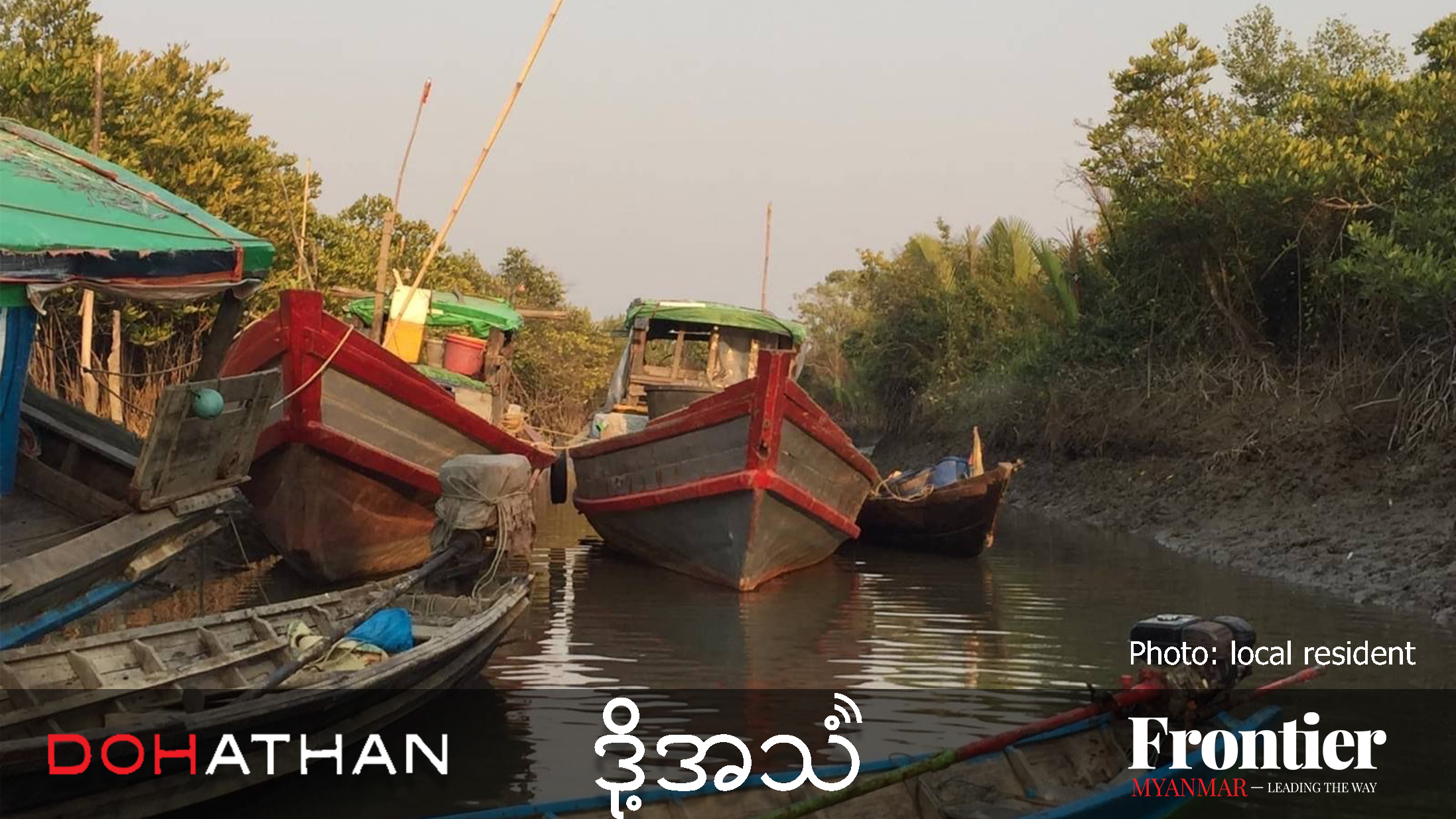A lynching in Sittwe and a defiant response to government moves against the hardline Buddhist group known as Ma Ba Tha raise concern about the possibility of fresh outbreaks of violence.
By SITHU AUNG MYINT | FRONTIER
AFTER A period of stability, an incident of communal violence returned to Rakhine State earlier this month. On July 4, a group of Muslim men travelling in a car in the state capital, Sittwe, was attacked by a mob of ethnic Rakhine. One of the Muslims was killed and six were injured, including two who were hospitalised.
It was the first such incident for some time in Rakhine. How are the responsible officials in Rakhine handling this case? Is it probable that there will be further outbreaks of communal violence in Rakhine and elsewhere in Myanmar? These are the questions I’ll be exploring this week.
The Sittwe incident occurred after two groups of Muslims left the Dar Paing IDP camp on the city’s outskirts by car and travelled to a court in the downtown area to give statements. There were 10 Muslims in one car, followed by another with seven passengers, and they had a police escort.
After the court hearing, the group of seven Muslims wanted to travel to the Yaung Ni Oo jetty to discuss buying a boat. They first went to a police station to arrange an escort because the jetty is in an area off-limits to Muslims unless they have permission. According to media reports, an unarmed police private was assigned to accompany the group. When the men arrived at the jetty, a crowd gathered and began pelting the car with bricks and stones. The police escort fled, one of the Muslims was killed, six were injured and the car was badly damaged.
Support more independent journalism like this. Sign up to be a Frontier member.
Since communal violence erupted in Rakhine in 2012, almost all of its Muslim population has been confined to IDP camps or designated areas. There are police posts at the gates of the IDP camps and residents need permission to leave. They are sometimes accompanied by police escorts when they leave the camps. It is probable that the seven Muslims who were attacked in Sittwe had permission to leave Dar Paing IDP camp to attend court. They also had permission, and were assigned a police escort, from the police station for their trip to the jetty.
The violence erupted when they reached the jetty and were attacked by a crowd throwing bricks and stones. Under such circumstances, it was unlikely that their police escort could come to their assistance.
If the situation is analysed carefully, it is hard to imagine that the violence occurred because of a conflict between the two groups of people. It was simply that a group of Muslims who had a police escort was attacked spontaneously.
Communal violence is the culmination of a progression of phases. It has hate at its base, which provides the motivation that leads to violent acts. Any genuine effort to reduce communal violence requires the implementation of a long-term plan to diminish the hate.
Action must also be taken to thwart the motivation for violence. It is equally important to take action against those responsible for it. However, no such action has followed the July 4 incident in Sittwe. A man has been killed and several injured, but there have been no arrests. Under such circumstances it is difficult to expect that communal violence will decline and eventually disappear in Rakhine.
Elsewhere in Myanmar, the situation is different. When the National League for Democracy formed the government that took power in late March 2016, it appointed a former general and member of the Union Solidarity and Development Party, Thura U Aung Ko, as Minister for Religious Affairs and Culture.
Aung Ko has moved to curtail the Association for the Protection of Race and Religion, the hardline Buddhist nationalist group known by its Myanmar acronym as Ma Ba Tha, as well as other religious extremists.
The establishment and rise to prominence of Ma Ba Tha under the previous USDP government coincided with an upsurge of communal violence throughout the country. Hate has spread. Religion has begun to interfere with politics. Aung Ko has worked against Ma Ba Tha with the supreme body representing the monkhood in Myanmar, the State Sangha Maha Nayaka Committee, which is under his ministry.
In July last year, the committee declared that Ma Ba Tha was not a lawful monks’ organisation. In March this year the committee banned the firebrand Ma Ba Tha member, U Wirathu, from giving sermons for a year. In May, the committee ordered Ma Ba Tha to cease its activities and to remove its billboards and signs throughout the country by July 15.
Challenging Ma Ba Tha has not been easy. In defiance of the May order, Ma Ba Tha branches in Mandalay Region and Kayin State have said they will refuse to dismantle their billboards and signs. They have warned that they will hold the government responsible if it sends officials to forcefully dismantle and billboards and signs and the result is a violent confrontation.
The extremists have also been sharply critical of Aung Ko and have arranged demonstrations calling for his resignation. In some townships, the authorities and members of the Myanmar Police Force seem to have given tacit approval for slanderous attacks on Aung Ko and protests against him.
Under these circumstances, a recurrence of communal violence is possible at any time.







